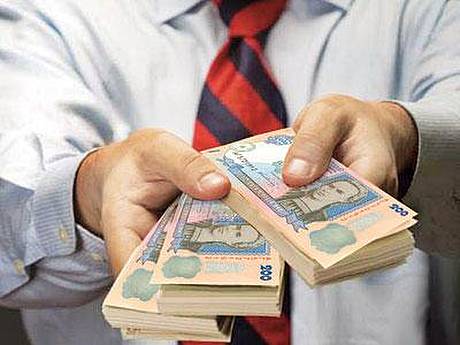
The financial and credit policy of the Ukrainian government and central bank need to be changed as soon as possible in order to eliminate a sharp problem with credit resources, reads a letter to the president of Ukraine written by the Anti-Crisis Council of Non-Governmental Organizations and the Ukrainian League of Industrialists and Entrepreneurs (ULIE) on the results of a recent entrepreneurs' meeting in Kharkiv.
"A slump in industrial output to 20%, a slowdown in exports and imports to 35%, and a growing wage debt – by 52% since the beginning of the year – all this promises gloomy prospects for the revival of domestic industries under the conditions of expensive bank loans. In fact, banks have scrapped serious crediting programs. The problem of returning the population's trust to banks has not been resolved. The amount of individual deposits has decreased by 11.3% in hryvnias and by 26.2% in foreign currency. Meanwhile, the government and the National Bank of Ukraine (NBU) do not offer serious and adequate approaches for the resumption of crediting programs for production enterprises," Head of the Anti-Crisis Council of Non-Governmental Organizations of Ukraine, ULIE President Anatoliy Kinakh said.
According to preliminary estimations, an average rate of the most popular working capital loans for enterprises has grown to 30% since the beginning of the year, which is absolutely unacceptable for industries, small- and medium-sized businesses.
Producers' risks will become even bigger as soon as the free trade area agreement between the European Union (EU) and Ukraine takes effect on January 1, 2016. The lack of credit resources will hit the competitiveness of Ukrainian products. Even if we do not take into account developed countries, where a discount rate fluctuates within 1%, Ukraine's closest neighbors (Poland – 1.5%, Hungary – 1.35%, Turkey – 7.5%) will certainly enjoy an advantage over Ukrainian businesses in the near future. Further facial correction of the discount rate by the NBU (from 30% to 22% during six months) will only strengthen the tendency for the further simplification of production, loss of highly qualified experts and engineers, dilution of entrepreneurship that forms the basis for the country's middle class, etc.
"At a recent enlarged meeting of the Anti-Crisis Council of Non-Governmental Organizations and the ULIE Management Board in Kharkiv, entrepreneurs lodged a demand to the government and the NBU, urging them to elaborate on a national anti-crisis crediting program for the real sector of economy based on market approaches and an adequate cost of credit resources," Kinakh said.
According to the document, the refinancing system must be improved by means of creating incentives for priority industries, introducing import substitution programs, producing socially important goods, implementing energy efficiency and energy saving programs, as well as developing micro financing for the support for small- and medium-sized businesses. Entrepreneurs also demand an increase in crediting portfolio in the national currency to provide production enterprises with guarantees on credits issued by commercial banks.
Businesses need the government to provide an indemnity for the funds that remain in their accounts at insolvent banks. There is acute need to set up a national stabilization fund for the regulation of weak banks' activities.
"I would like to stress that any activities in the sphere of crediting the real sector of economy must be conducted in an equal and mutually responsible partnership with the business community. This is the only way how the government could stop destructive crisis trends, improve the business climate, notably through the resumption of affordable crediting, and bring the economy to the level of sustainable development," Kinakh said.